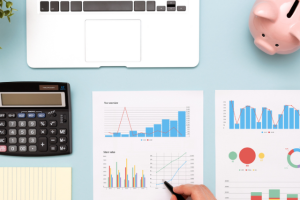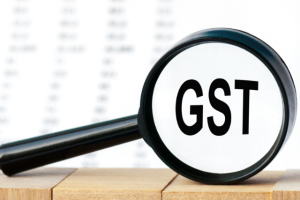Maintaining accurate financial records and implementing effective bookkeeping processes is...
Read More
Does A Sole Trader Need A Separate Bank Account For Their Business?
Short answer – you don’t have to. But you should.
And… you want to keep reading to learn why.
As a sole trader you are not required to have a separate bank account for your business, but my experience suggests it is a good idea and a good business practice to have a separate bank account no matter how small your business is.
Here is why.
Establish A Business Mindset
It doesn’t matter how small your business is. You may start your business by selling a few homemade cakes during the weekend or building one website a month and having very few business expenses.
Start your business with the right mindset and encourage yourself to think and behave as a business owner.
Having a separate bank account for your business from the moment you start it is one step in setting up a good foundation for your business and will allow you to focus on growth rather than daily operations.
Better Cash Flow Management. Better Financial Position Review.
One place. Full view.
When all business transactions, both income and expenses, are gathered in one place, by simply logging into your bank account you can check the bottom line or dive dipper and view cash movement in your account.
Having a separate bank account for your business makes it easier to track business income and expenses.
You can always know what your business’s financial position is and be able to analyse your accounts.
As a business owner you need to be on top of your financials and know where your business is at any given time; do you make a profit or are you at a loss? By having all business transactions in one place it is easier to manage cash flow and have accurate information of the business financial position.
Easier Bookkeeping With Separate Bank Account For The Business
Easier. Faster. Cheaper.
It is much easier and less time-consuming to keep your business books updated when you have separate bank account for the business. You will spend less hours working out if a bank transaction is personal or business related, ultimately saving you valuable time.
Time is money – Don’t forget that your time is valuable, so the time spent sifting through bank records can be spent earning income for your business.
A separate bank account for your business will also save you valuable time and money at the EOFY (End of Financial Year) when you need to submit your tax return. You will have all business transactions in one place to give to your accountant or tax agent.
Link The Business’s Bank Account To Your Accounting Software
Automation
Efficiency
Accuracy
Maximise Tax-Deductible Business Expenses
If all business expenses are in one account, it will not take hours to sift through and find business expenses from your personal bank account. You will never forget to claim a business deductible expense, ultimately maximising your tax return.
More than that, if you have a dedicated business credit/debit card in your wallet (digital or physical card) it will make you think twice, before swiping the card, whether the purchase you made is business related or not.
My top tip here is, when ordering a credit/debit business card: order a card with a different colour to your personal card, so when making a payment it is easy to pick the right card.
Pay Yourself – Owner’s Drawings
As a sole trader you don’t take salary from your business, but you can take earnings from your business by transferring as much or as little as you need from your business’s bank account to your personal account.
If the business needs money, you can also transfer money from your personal account to your business account.
If you are using an accounting software (which you should be), you can link your business’s bank accounts and credit cards to the software.
Once the bank accounts are connected, you will have automated bank feeds for ease of allocating and reconciling business transactions to the correct expense or income account. Using accounting software for the business financials with linked business’s bank account will save you valuable time and when processes are easier and faster, we tend not to neglect them.
In Summary
My Top Tips For Bank Account For A Sole Trader
- Issue visa debit card in a different colour to your personal banking card
- As a sole trader the bank account can be personal rather than a business account
- Bank fees are a deductible business expense
I hope this blog post helped you see the benefits of having a separate bank account for your business.
There is no better time than the present, so go ahead, contact your bank, and open a new account dedicated for your business.
Once you opened the account, if you need help choosing, or setting-up an accounting software and link your bank account, please don’t hesitate to contact me.
Related articles
GST basics for Australian businesses
This article aims to provide you with a fundamental understanding...
Read More
